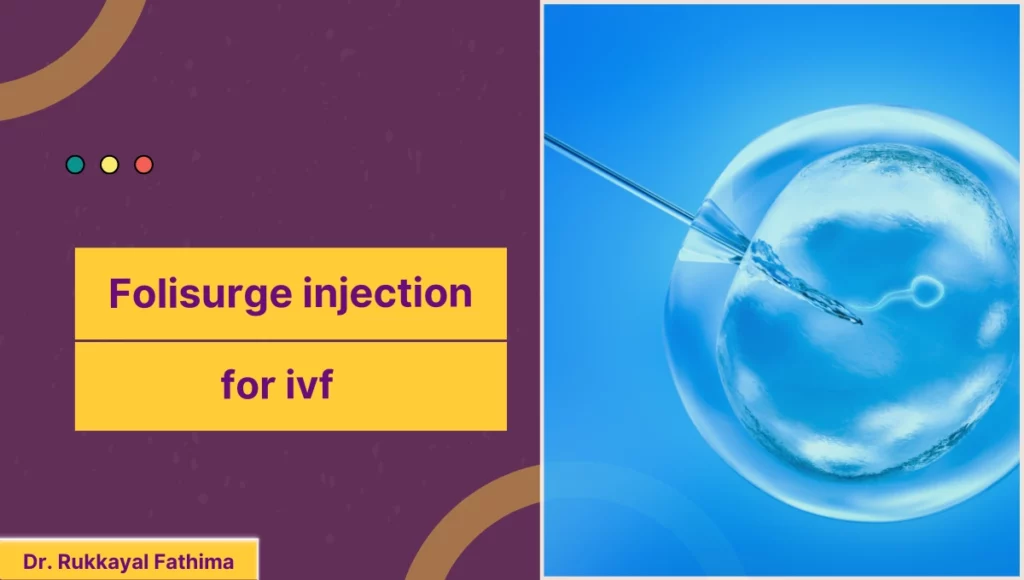Folisurge is one of the many injections your fertility doctor will prescribe for your infertility treatment. It is an integral part of your IVF treatments.
Folisurge injections have helped several women with ovulation issues develop healthy and mature eggs. This also helps women develop mature eggs during the ovulation induction stage of IVF.
In this article, we’ll examine in detail the role folisurge injections play in IVF and the possible side effects of the medication. This will help you be aware and prepare for the treatments.
How Folisurge Injection Works In IVF
When you are starting your IVF treatments, your fertility doctor will give hormonal injections for a number of days. This is to stimulate your ovaries and grow more mature eggs. One such injection is folisurge.
During ovulation, your body requires FSH (follicle-stimulating hormone) to stimulate the ovaries to produce more mature eggs. You might not ovulate if the FSH levels are lower than normal.
Folisurge injection has follitropin alfa, a synthetic form of FSH, that can mimic its functions and help with ovulation. This helps with the development and production of multiple high-quality mature eggs, increases the number of eggs collected during egg retrieval, and increases the chances of pregnancy.
What Are The Uses Of Folisurge Injection?
Below are some of the uses of folisurge injections.
Stimulation of follicle growth
Folisurge is a synthetic form of FSH that mimics the hormone’s function and stimulates the growth of egg follicles. This can help with healthy egg development.
Helps with egg maturation
Each egg follicle will contain an immature egg inside. Folisurge will also help with egg development and their maturation.
Aside from treating ovulation issues in women, Folisurge injections also help treat certain male infertility issues.
Helps treat hypogonadism
Hypogonadism is a condition where the male does not produce enough testosterone, the hormone that stimulates sperm production. Folisurge can increase testosterone levels and help with sperm production.
Helps with delayed puberty
Folisurge can also help treat boys with delayed puberty. The testosterone increase can help with normal sexual development.
What Are The Side Effects Of The Folisurge Injection?
Like most IVF injections, folisurge can also cause minor and sometimes major side effects. Your fertility doctor will talk to you about these side effects before starting your fertility treatments. Let’s have a look at some of the major side effects below.
- Pain or swelling in the injection site
- Headache
- Abdominal cramps
- Ovarian cysts
- Rashes or allergic reactions
In rare cases, you might get OHSS (ovarian hyperstimulation syndrome), a condition where your ovaries overreact to the fertility medication. This can make your ovaries swollen and painful. Sometimes, folisurge injections can also cause ectopic pregnancies.
Conclusion
Folisurge injections are an essential part of your fertility injections. They can make regulate egg development and ovulation. Remember that folisurge should only be taken under the supervision of your fertility doctor. Consult your fertility doctor before taking the medications.
The best follicle injection for you depends on your consition. Your fertility doctor will do the necessary tests and prescribe the suitable injection for follicle growth for you.
In cases where you have infertility issues due to insufficient egg size, your fertility doctor will prescribe medications that can increase your follicle egg size.
Folisurge injections should be injected in the muscle under your skin. You can ask your fertility doctor and understand how to administer the injections.





